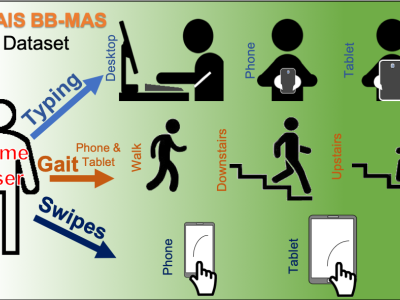Data Synthesis - The Effects of Human Aspects on the Requirements Engineering Process: A Systematic Literature Review

- Citation Author(s):
- Submitted by:
- DUlaji Hidellaarachchi
- Last updated:
- DOI:
- 10.21227/vvkp-n846
- Data Format:
- Research Article Link:
 341 views
341 views
- Categories:
- Keywords:
Abstract
This is the data analysis done for the paper titled "The Effects of Human Aspects on the Requirements Engineering Process: A Systematic Literature Review" (submitted to IEEE Transcations on Software Engineering).
Paper Abstract: Requirements Engineering (RE) requires the collaboration of various roles in SE, such as requirements engineers, stakeholders and other developers, and it is thus a very highly human dependent process in software engineering (SE). Identifying how ``human aspects" -- such as personality, motivation, emotions, communication, gender, culture and geographic distribution -- might impact on the RE process would assist us in better supporting successful RE. The main objective of this paper is to systematically review primary studies that have investigated the effects of various human aspects on the RE process. We wanted to identify if any critical human aspects have been found, and what might be the relationships between different human aspects impacting the RE process. A systematic literature review (SLR) was conducted and identified 474 initial primary research studies. These were eventually filtered down to 74 relevant, high-quality primary studies. No primary study to date was found to focus on identifying what are the most influential human aspects on the RE process. Among the studied human aspects, the effects of communication have been considered in many studies of RE. Other human aspects such as personality, motivation and gender have mainly been investigated to date in relation to more general SE studies that include RE as one phase. Findings show that studying more than one human aspect together is beneficial, as this reveals relationships between various human aspects and how they together impact the RE process. However, the majority of these studied combinations of human aspects are unique. From 56.8% of studies that identified the effects of human aspects on RE, 40.5% identified the positive impact, 30.9% negative, 26.2% identified both impacts whereas 2.3% mentioned that there was no impact. This implies that a variety of human aspects positively or negatively affects the RE process and a well-defined theoretical analysis on the effects of different human aspects on RE remains to be defined and practically evaluated. The findings of this SLR help researchers who are investigating the impact of various human aspects on the RE process by identifying well-studied research areas, and highlight new areas that should be focused on in future research.
Instructions:
First tab of the data sheet consists of raw data, second tab consists of inclusion/exclusion criteria of the data extracted and the rest of the tabs consist the analysis.





